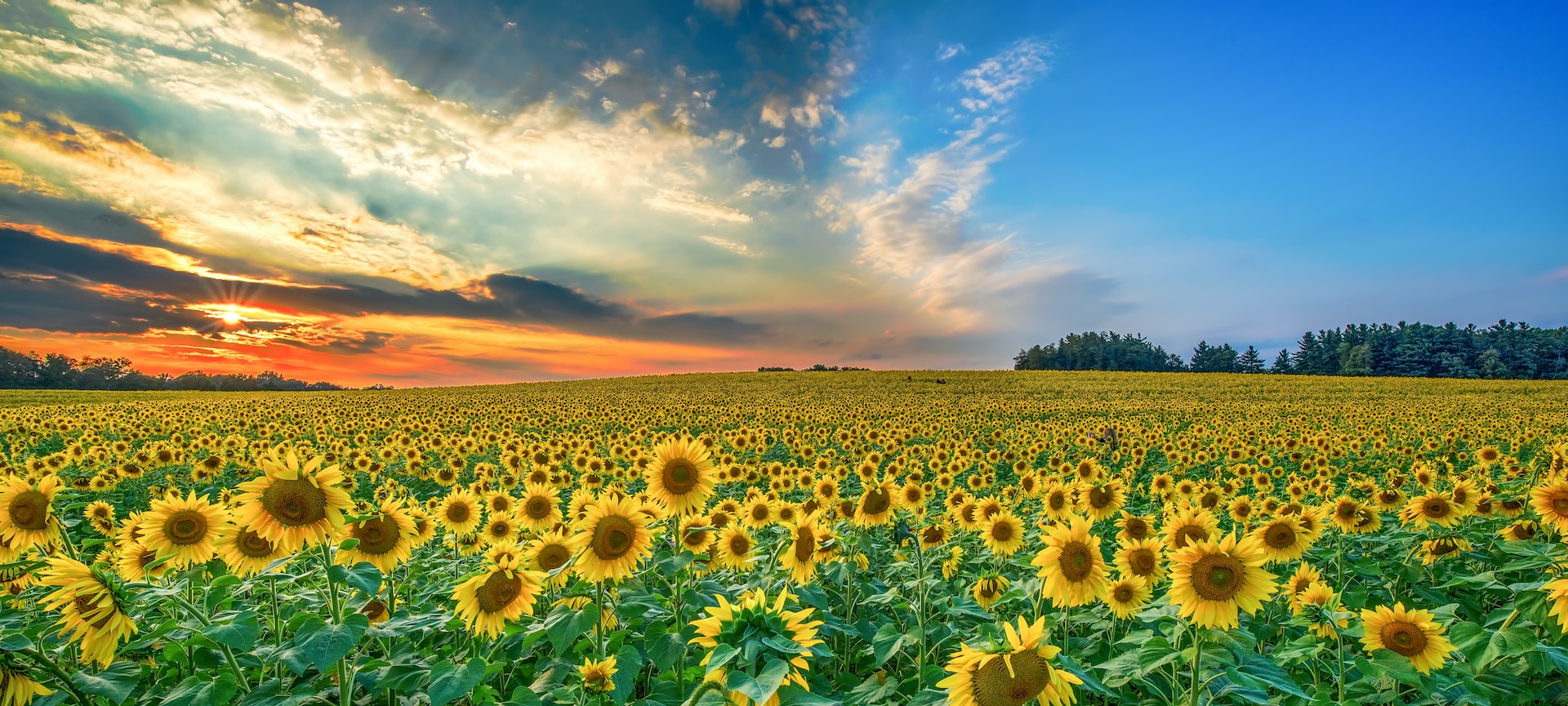Interesting Uses for Sunflowers: Not Only a Pretty Flower
Sunflowers might initially seem like nothing more than pretty flowers, but they have numerous uses that extend far beyond the beauty of their bright yellow petals. From providing an essential food source for wildlife to various medicinal purposes and even industrial uses, sunflowers are an incredibly versatile crop with many practical applications.

The history of sunflower uses
The use of sunflowers can be traced back centuries; some evidence suggests that Native Americans used them as early as 3000 BC. While it is widely accepted that the Aztecs were among the first to cultivate and consume sunflower seeds, they were also popular with many other tribes living in what is now Mexico and Central America. By 1000 AD, the sunflower had spread throughout the continent, and Native Americans were using the oil extracted from its seeds to make food and medicine.
Sunflowers are also essential in Eastern European countries such as Russia and Romania, where they have been grown for centuries. In these countries, sunflowers are not just beautiful flowers - they are an essential source of food and oil.
Sunflowers as food
One of the most common uses for sunflowers is for their edible seeds; they are a great source of protein and vitamins, making them an ideal addition to any diet. The seeds can be eaten raw or roasted to bring out their flavor, and they may also be ground into flour to make bread, muffins, and other baked goods. Sunflower oil is also popular in many households due to its versatility; it has been used for centuries as a cooking fat, salad dressing ingredient, and margarine substitute. The flowers can also be eaten; when dried, they make an excellent garnish for salads or as an ingredient in stir-fries.
It is also important to note that sunflowers are essential to the ecosystem. They provide food for birds and other wildlife and a much-needed source of nectar for bees. This is why it is essential to have some sunflowers in your garden if you are looking to attract beneficial insects and other wildlife.
Medicinal sunflower uses
Sunflowers have also been used to treat a variety of ailments. The leaves, stems, and flowers may be boiled, and the resulting liquid applied to sores or bites to help heal them. In addition, the oil extracted from sunflower seeds has anti-inflammatory properties that can be used to ease joint pain and swelling. Sunflower oil may also be used in aromatherapy; its scent reduces stress, promoting relaxation and sleep.
Another sunflower use that has been gaining attention recently is its ability to help purify water. Sunflowers effectively remove certain heavy metals from water, making them a valuable resource in areas with contaminated water supplies.
Industrial use of sunflowers
The usefulness of sunflowers goes beyond food and medicine; they can even be found in many industrial products. Sunflower oil is often used as a base for paints, varnishes, and printing inks. The flower's petals can be dried and ground up to create an absorbent substrate for insulation or packing material for fragile items. Sunflower husks are also used in the production of paper and cardboard.
Additionally, sunflowers are an excellent source of biomass - the dried stalks can be burned to produce energy. This is a great way to reduce fossil fuel use and carbon emissions.
Decoration and craft uses
Sunflowers can also be used to decorate your home or garden. The dried petals can be used in floral arrangements, while the bright yellow blooms make a beautiful addition to any flower bed. For those who are more crafty, sunflower heads can be used to make wreaths and swags or even turned into jewelry with the help of a few essential tools.
Some people learn how to grow sunflowers in order to create mosaics or even as the primary subject of paintings and other artwork. Sunflowers are an excellent choice if you want a creative way to spruce up your home or garden.
The symbolism of a sunflower
The beauty of the sunflower is not limited to its aesthetic appeal; it has long been seen as a symbol of hope and optimism. This symbolism has been especially prominent in the last century when sunflowers were seen as a reminder of perseverance during times of difficulty. Sunflowers also represent loyalty and adoration; they are said to follow the sun and turn their heads toward it, symbolizing unending dedication.
Sunflowers have also been used as a symbol of friendship; in many cultures, sunflowers are given to friends and loved ones as a token of admiration. Some cultures even see the face of a sunflower as a representation of a smiling friend.
On that note
Sunflowers have been used for centuries in many different ways. From food to medicine, industrial products to symbols of friendship and hope, sunflowers are versatile and valuable plants with something to offer everyone. Whether you're looking for an edible snack or a friendlier environment for wildlife, sunflowers may be the perfect addition to your garden. These stunning flowers can be enjoyed for years with a bit of care.